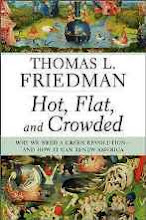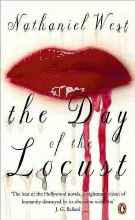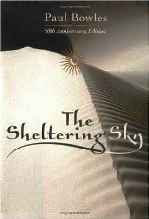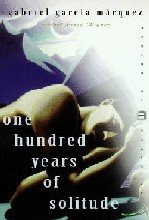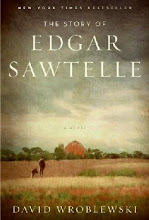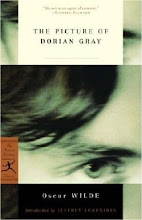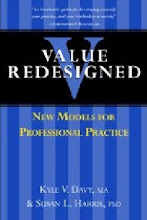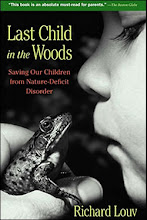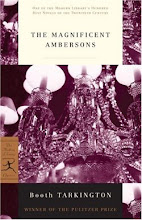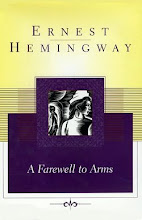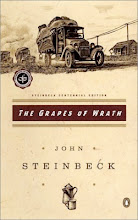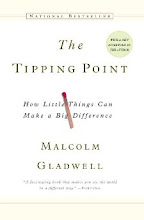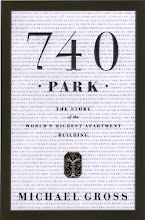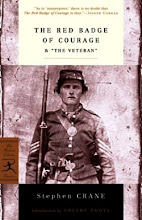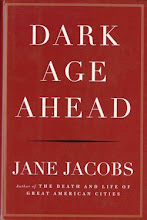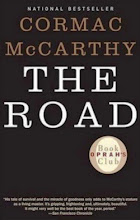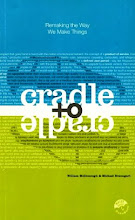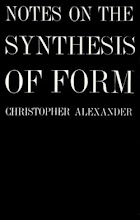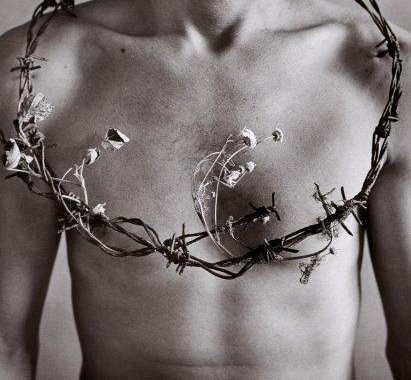Over the Memorial Day weekend while looking at family photos, I rediscovered the memoirs of my great aunt. She had taken the time before she pasted away and wrote an essay about her father Joseph McLean, who had a very distinguished career in the construction industry. He was considered by many to be a leading figure in the construction on many of America’s skyscrapers and treasured memorials. He knew many of the leading figures of the day. I have spent much time researching his work, since I am in the same industry. Here’s my great aunt’s essay which was written in the 1960’s.
John McLean (1867-1943)
Dad's dream and aspirations were to be a doctor and with determination to be the best. With his very skillful hands, I know he would have made a good one. But it wasn't to be. His father's untimely death changed all that. He was not the least bit interested in farming so at age 14 he was apprenticed to a cabinet maker for 5 years. During that time he became a very skilled mechanic. He loved wood and good workmanship. After his apprenticeship he got a job in civil service in Melbourne. While there he met mother and they were married. At that time dad was very thin with a heavy mustache and grandma asked mother why she would marry a man who was going into consumption. Over the years mother changed that. When she was young, mother's desire was to open a shop for baby’s clothes. She could sew and embroider beautifully and it gave her the greatest pleasure to smock and pretty up a little girl's dress. But that all changed when she started going with dad. He was determined to succeed so every evening he would bring home math and engineering books and she would help him study. Dad was very good at math and could solve almost any problem connected with the building industry. Give him a slide rule, and he could do wonders with it. His one regret - he never learned euclid. This he spoke of often.
I believe it was around 1901 that King George V and Queen Mary, then Duke and Duchess of York paid a State visit to Australia. Of course they visited Melbourne and dad was asked to make the gift the city would present to the royal couple. Dad was told to make a set of six pens. He was given a 10 foot log of Fiddlebark Mahogany, a very beautifully grained native tree to work with. Dad made the pens and then took them to a goldsmith where they were elaborately decorated with 24 carat Australian gold. Dad, of course, was not invited to the State Dinner but his uncle was. When the time came to toast the King and Queen, as was custom the champagne glasses were all thrown into the large fireplace and broken. But Dad's uncle instead put his glass in his pocket and brought it home to Dad. It was just a cheap glass but it held many memories for dad and was carefully preserved. Today Peggy has the glass. On Bob's report of his business career, he makes mention of a picture frame that dad also made. An international contest was being held among all British territories for someone to design and make a frame big enough to hold a life size painting of King Edward VII and Queen Alexandria. It seems dad's design won and the picture now hangs in the Big Hall at Buckingham Palace. Evidently dad never knew this for he never mentioned it at all - only the pens.
An opportunity opened up in dad's department for the job as head of the department. Dad took the test and came out tops above everyone else. However the man who came in third also wanted the job, so he went to his priest. The priest exerted his power and that man got the job. Dad was so angry he left the department and decided to go to South Africa Mother stayed behind with Bob, Rita and Henry. Dad soon found jobs in Pretoria and Durbin. It was in Durbin, I believe, that he fell in love with a diamond in a jeweler's window. It was a beautiful canary diamond displayed on blue velvet and dad just couldn't forget it. He was determined to buy it even though he didn't have the money - however that was no deterrent. He told the jeweler to hold the gem for him and he would be back for it. In those days dad was a very beautiful dancer (he still was in 1934) so after work he started teaching dancing to raise extra money. Bit by bit he saved the money and purchased the diamond. Then the problem was how to get it into Australia without paying duty. A friend of his was going back so he carefully wrapped the stone in old paper and stuffed it into the toe of a friend's working boots. Mother got the diamond without any problem.
By that time dad had made contact with Milligan Brothers, contractors from the U.S., who had a big job in Johannesburg. Dad went back to Australia, got mother and the children and returned to Johannesburg. The job was the construction of the office building for the DeBeers Diamond Co. It was the first steel construction building in South Africa and consisted of several floors with a huge safe in the basement to store the diamonds. As the building was constructed on solid rock dad was asked if he could handle dynamite to blast the rock necessary to make the safe. Dad, of course, said yes he could handle dynamite even though he had never even held a piece in his hands. That was Friday. Saturday he went to visit a friend, an old miner who could handle the stuff. Dad spent the weekend learning how to work with dynamite. Confident he could do the job; he went to work on Monday and started blasting. When the entire framework was up, by custom a tree was put on the roof. That night the natives on the job paid dad a great honor. They came out to the house and gave him a chivarie, at that time seldom performed for white people in South Africa. Dad really knew how to handle people.
When the building was finished the company asked dad to go to the United States as they had jobs there. He went home and told mother she had a week to pack. Dad had made some good solid trunks - one for his tools and two for whatever she could pack in them. Mother had just made a lot of jam and was determined to take it with her. When they reached customs dad was instructed to open all the trunks and bags. The agent started by examining one trunk. He put his hand down one corner and came up with a handful of broken glass and jam. Disgusted, Dad was told to shut all the trunks and bags and move on. As you might have guessed, they had had a very rough crossing. Rita clearly remembers when they went through a typhoon seeing every adult in the saloon on their knees praying for help and forgiveness as they never expected to survive.
At the dock they met Mr. Cunningham who had preceded them from Africa. Mr. Cunningham took them to look for temporary housing. So, Bob being the oldest was given the responsibility of taking care of Rita and Henry. They spent the day in Battery Park. Bob had been given some money and was carefully told which was a penny, a nickel, a dime, a quarter. He was instructed to buy lunch. The three spent the entire day exploring every part of Battery Park and the aquarium. Dad contacted Milligan Brothers and was told the job was in Staten Island so that was where they moved to. The first job was to build a plant, for Ivory I believe. By that time Milligan Brothers had no further work and a depression was on, but with only one short lay off dad always seemed to be busy.
It was around 1917 that he met Mr. Hegeman, Mr. Harris, and Mr. Baxendale. The four of them formed a company called Hegeman-Harris Co. While the others were inside men -running the office and working with prospective clients, dad was the building supervisor. At first they were non-union and did all their own work. They maintained their own supply yards and hired extremely talented people. Their reputation for quality work spread and they became acquainted with some very influential people while fixing up and redecorating beautiful homes and mansions. However as their business grew, it became necessary to enlarge and let work out to subcontractors. They hired superintendents for each job and dad became the general superintendent.
Before they enlarged however, I remember one job in particular that dad loved to tell about. In the very early 20's they were redoing the apartment of a very famous Broadway actress. She had gone to Europe and fallen in love with a 1000 year old fireplace in some palace. She bought it and had it shipped over. She sent dad very definite instructions on how to handle it. Dad went down to the ship to see that the crate was carefully unloaded and trucked to the apartment. When the crate was opened, it was found the elaborately decorated fireplace was made of wood and was so worm eaten and rotted that it couldn't be even touched with out crumbling apart. It definitely could not be installed. Without any qualms dad brought in his best carpenter, and painter. They built a new fireplace. His carpenters with shaping and engraving tools made an exact copy of the original design. Then Paul, a very talented artist, went to work. He used a beebee gun to shoot holes in the wood where the worms had eaten the original. Then he antiqued the worm holes and all of the filigree. When he was finished, it was impossible to tell the difference between the old and the new. When every one was fully satisfied with the copy, the original fireplace was burned and the new one installed. When the actress returned, she was simply thrilled and overjoyed that the fireplace had stood the journey so well. She was so pleased she gave a large reception to show off her purchase. It was a great success.
Dad's company during his active years never went for small houses; only in one instance did they do so. During World War I they practically built a whole city for the Navy in New Port News, Virginia. They were mainly interested in colleges, hospitals, and commercial buildings. I remember a few of them built when he was general superintendent and before 1932 but I have forgotten most. Those I do remember are: one hotel in Washington, D.C. , a small bank in Red Bank, N.J., a large church in West Palm Beach, Fla., a theater in Newark, N.J., where there was a long argument over the motto inscribed over the front door, Should it be "Whatever you do, do well" or " Whatever you do, do it well" , Elks Memorial in Chicago, the tomb of the Unknown Soldier in Arlington Cemetery (just the tomb not the present buildings around it), Chicago Tribune Tower, American Radiator Building in New York City made of black marble, Hospital at Louisville in connection with the University, Libraries at Dartmouth, Yale, and Harvard, Einstein's Lab at Princeton, N.J., Additions to Brooklyn Memorial Hospital and Lenox Hill Hospital, a building on Wall Street, the Pennsylvania Tower for a Light company in Allentown, Pa., and the Fifth Avenue Presbyterian Church. The Fifth Avenue Presbyterian Church was built for Rockefeller. The RCA Building in Radio City, NYC was dad': last big job. He did not put up the Trilon or Parisphere at the 1939 World's Fair but the contractor who did had to call dad in as a consultant when he had a problem he couldn't solve. In addition to the above he did restoration work on many magnificent homes and mansions in the New York area, many of them I got to see. On of those jobs he got a big chuckle out of was redoing the apartment of Mrs. Paley, wife of CBS president. Three times they did walls and put down inlaid floors and a furniture company furnished draperies and furniture and three times it was all ripped up and done over again. Dad never got over laughing about the two bathrooms. One was tiled in small pink glass mirrors and the other in blue. When you sat on the toilet, dad said you saw a thousand reflections of yourself.
One time he was asked by Mr. Rockefeller to go to Tuskegee Institute in Alabama. They had requested a donation and Mr. Rockefeller wanted to make sure they merited it. Dad had the privilege of meeting Dr. George Washington Carver who by that time was very old and feeble. To shake hands you held out your palm and he just laid his palm on it. Dad was most impressed with what they were teaching the boys. They made their own bricks and built the buildings. They even could do their own electrical work. Some with artistic talents were using potters wheels and turning out some beautiful vases, etc. At the threat of W.W.II in 1939 the New York Mirror asked him to examine the roof of their building and recommend what should be done to reinforce it in case of air attack. Dad was truly respected throughout the country as one of the leaders in the building industry. He was also on many occasions the go-between for the building contractors and the unions. He had a very good relationship with Mr. Samuel Gompers who he regarded as a very honorable man.
He was well liked by all the men who worked under him. If any one was having a problem, he never hesitated to stop and see if he could help. If the man was truly interested in what he was trying to do, Dad would work with him over and over until the man could handle it properly. He would never swear at any one and never reprimanded or criticized anyone in front of others, he would call them aside. But the one thing Dad never forgave was tardiness. He would fire a man for that quicker than for anything else. He, himself, when in charge of a job was always there first and had the work all laid out by the time the men arrived. In addition a man should never keep a lady waiting under any circumstances. The lady could be late but never the man. He always carried two pencils with him, a gold one on his watch chain and a silver one. When Dad had to sign a paper, the supers watched anxiously to see which pencil he used. The silver meant something was unsatisfactory and the gold always brought a smile.
In 1928 Dad took his first real vacation - seven months on a semi-retired basis. Mother, Dad, and I (Hannah McLean) went to Australia in October. The night before we left Mother had all the family to dinner, adults no children. After dinner she had a surprise. Dad loved auctions and at one bought a huge diamond pin. It wasn't really beautiful in design but it contained many diamonds and a few sapphires. The pin was taken to Hardigan Jewelers in Newark and broken down. The center stone about a 2 carat diamond was made into an engagement ring for Mother together with a solid diamond wedding band. A gold ring with 3 diamonds was given to Bob and a one stone ring to Dave. Rita and Bertha both got beautiful dinner rings. I got a bracelet with a diamond in each white gold square and enough loose stones were set aside for Roger, who was then in college, to be made into a wedding band for the girl he would marry. The remaining stones were put into a beautiful brooch for mother. At that time she also gave me the canary diamond which she had had placed in a beautiful platinum and diamond setting.
The next day we left on our trip. We took the train to Chicago and from there through the mountains to Vancouver. By the time we reached Vancouver Dad knew half the people on the train. He was very outgoing and just loved people. We sailed on the Aorangi- the star ship of the fleet and 13,000 tons. We had a good crossing and a wonderful time. We stopped at Honolulu and Suva, Fiji and took tours of both islands. Also stopped at Auckland, New Zealand. We landed in Sydney and took the train to Melbourne.
At Melbourne Uncle Tom met us and we stayed at his home. It was a big house with plenty of bedrooms but no one slept in a bedroom. All slept on the side porches around the house that is all but mother. She insisted on a bedroom. Uncle Tom had bought a small 2 seat car for Dad and Mother to use. So wherever they went I had to follow by train.
After touring Melbourne and spending several days with Aunt Lil in Foster where we all had a wonderful time and went swimming on Christmas, it was time to visit Dad's family. We stayed with Uncle Roger and Aunt Sara. They were a nice couple. I liked them both very much. We next went to visit Aunt Hannah, Aunt Bec and Uncle Willie. They had a large farm house with more conveniences than Uncle Roger or Aunt Sara but the same feeling of true friendliness was missing. We were invited on an endless round of teas. At that time there were seventeen Mrs. McKernans living in Euroa, so you had to be careful what you said to anyone. We had one very interesting side trip to Shepperton. A nice town with lots of greenery. But then it is it an area watered by irrigation from the Goulburn weir. Much like Imperial Valley in California. We visited some of the fruit farms and I saw the biggest bunches of grapes I had ever seen. We went through the Shepperton Fruit Processing plant where they can pears and peaches. The girls did the peeling, halving and stoning quicker than machines could. A piece of fruit goes in one door and half an hour later it comes out another door, canned, labeled and ready for shipment. They handled 105 tons of fruit a day. A very interesting visit -The only amusement at night was talking or playing cards. One evening Uncle Willie informed us that we did not belong to a church only a sect, a true church must have a bishop and celebrate the seven sacraments. So there are only 3 true churches - the Episcopalian, the Roman Catholic and the Greek Orthodox. Needless to say that didn't sit too well with either mother or dad. But he was just as opinionated about everything else so you didn't even let it go in one ear. On one of our last days there we had a picnic and over 50 McKernan relatives were on hand. I didn't even try to remember names or relationships. Just say "McKernan" and every one answered. It was a wonderful way to say good-bye.
After Euroa we went to Seymour to visit Aunt Eliza. Her husband had died earlier that year. Life at Seymour was very monotonous. There was absolutely nothing to do. No radio. Played cards a bit. We lived on Iamb. They raised sheep and prize bulls. If a lamb was prepared for dinner and it rained or thundered, it was immediately cooked to keep it from spoiling as they had no refrigeration at all. So you lived on cold lamb day after day. Dad made his excuses and left as soon as he could. He just had to see the end of the cricket match. Mother and I stuck it out a few more days. We returned to Melbourne for another round of good-byes for we truly had had a wonderful visit there. All mothers’ family gathered for the last farewell.
We had some interesting and beautiful side trips. Dad had gotten a bigger car so I could go with them. We visited Lakes Entrance but had to stay longer than expected because of bush fires. When we were allowed to leave we were lucky to be behind a native of the area. Trees were still burning on both sides of the road and one had fallen across the road. No problem. He just got his ax out and chopped the tree apart. We went up the Snowy River but was told not to stay as the fires were getting too closen. One interesting visit was to Yallourn. A beautiful little town - clean as a whistle. It was where they mined brown coal and turned it into electricity for all the countryside. The day we arrived they had just opened up their new hospital.
Naturally we went through it. Dad mentioned the fact to the hotel manager that he had built some hospitals. The manager told the Hospital Head who told the surgeons. So Dad was asked to go through the building with them and point out what he would have done differently. He made several good suggestions and as a result we got a personally escorted tour of the mine. I remember thinking how funny it was that so many men had to ask the super questions. It was just to get me to talk. They had never heard a Yankee speak before and were fascinated by my accent. I was sorry to learn a week later that the town had burned to the ground. It was such a pretty place.
One thing Dad accomplished during his visit was to teach all the girls of eligible age in all the families to drive and saw that they got their licenses. He was a good teacher. He even got mother to drive which was really a miracle. She had to take the test three times. She finally succeeded but hated driving. She was literally afraid of the car.
We returned home on the Tahiti, a 7000 ton ship, making stops at Wellington, Raratonga, and Tahiti. At Wellington we had arranged to meet Dad's uncle, Robert Hannah. It seems that Dad's Aunt Hannah Ferguson had married Robert so she became Hannah Hannah ! One Hannah is bad enough but two! Dad had written him of our visit to Wellington. When we landed the company car and chauffeur were there to meet us and drive us all around the area. We were to meet Uncle Robert at six for dinner. The car again picked us up, Uncle Robert did not live in the famous Hannah mansion but in a town house on a steep street. There we met Uncle Robert, his two daughters and either their husbands or fiancées I am not sure which. Uncle Robert arranged for us to visit the Hannah Shoe Manufacturing Co. the next day. After a delightful dinner, it was time to go back to the ship. The two men had cars and the company car were all parked in front of the house. But instead of driving us to the ship Uncle Robert told us to go to the top of the hill and get the bus which would take us directly to the pier. We walked up the street as instructed but then Dad called a cab. He was so angry he could hardly talk but he was determined never to see his Uncle again. So early the next morning we took an all day bus trip and got back to the ship just in time for sailing. Dad could never get over it - three cars in front of the house and we were told to walk. Today the Hannah Shoe Mfg. Co. is still in business.
In Tahiti Dad hired a car to drive us around the island, a distance of about 125 miles. Tahiti is cone shaped - very high in the center and sloping steeply down to the shore line. The one car wide road followed very closely to the water. Many little rivers flowed down the mountain. The bridges were simply cement slabs one car wide with no railings and road level. Half way around the island we had to stop for a very heavy rain storm. The water quickly rose in the streams ahead of us and was soon 2 feet deep over the bridge. We waited as long as we could for the rain to stop and the river to lower as we simply had to catch the ship and no place to turn around so we had to go ahead. The driver gathered some native boys and had them stand on either side of the bridge to show where the edges were. Other boys pushed and guided the wheels so we wouldn't get stuck in the water, and swept into the ocean, which was only 10 - 12 feet from us. It was truly scary. But Tahiti is beautiful and we did enjoy the ride once over the bridge. The rest of the trip was uneventful and we landed in San Francisco on April 12. We visited all of San Francisco and spent 3 days at the Ahwanee Hotel in Yosemite. Then we visited Los Angeles, San Diego and Tijuana before taking the train through the Carissa Gorge to Phoenix. From there we went to Grand Canyon and stopped at the El Toro Hotel. After a two day visit there, we returned to Phoenix and took the bus to Globe over the Apache Trail - a most thrilling ride. Our next stop was to New Orleans. We visited the old Farmers Market and had dinner at Antoine's. It was supposed to be world famous. I must admit I was disappointed with Antoine's. It was small not too clean, red checkered table cloths and Child's china but Waldorf prices. I will say, however, the dinner was excellent. We arrived home on May 3rd. My diary contains a complete description of our sightseeing tours.
Before we left on the trip Dad had sold the house in Glen Ridge and bought land in Short Hills. While waiting for the new house to be built we stayed with Rita and Dave and the children. At that time they had a nice home in Maplewood, not very big but comfortable. In 1932 we moved into our new home, a real dream house.
About that time Dad wanted to retire and asked to have his stock redeemed which was worth $250,000.00. Mr. Derricks, who was with the firm then persuaded Dad to stay in and hold onto his stock as they had plenty of work ahead. Dad reluctantly agreed and continued on semi-retired basis, working three days a week for $69.00 a week and doing no traveling. In 1934 one of the accountants visited Dad on a Sunday urging him to sell as the company was keeping two sets of books. But Dad couldn't believe it - Hegeman and Harris were his friends and they wouldn't mislead him. So he held on.
In 1935 Rita moved to Matawan, N.J. as she thought it would give her son Davie a better chance in life. While looking for her house, Dad also found a 100 year old house with only 10C feet separating two houses. He came from the land and I guess he felt an urge to return, so he bought the house with 10 acres of land. As he was only going into New York three days a week, he hired Holmes Emmons to work around the house and yard with him. A beautiful garden was put in for Mother. For himself Dad planted boysenberries, raspberries, currants (red, white and black) and specimens of every type of fruit and nut tree. But he and Emmons spent most of their time helping Rita fix up the old farm house she had.
In 1938-39 Dad spent a lot of time at the New York World's Fair. After the Fair opened, Rita hosted a dinner for him at her house. There he entertained Lord and Lady Beal of England, Dr. and Mrs. Pulivka of Czechoslovakia and the young architect of the Australian Pavilion as well as Bob and Bert. Bob had known the Beals and Pulivkas in Europe. It was a very pleasant day and Rita did herself proud. Lord Beal made himself at home in the kitchen and proudly announced he had made the gravy. Mrs. Pulivka, a countess in her own right, couldn't get over the size of Rita's house. She said back home it would accommodate four families. The young architect was fascinated by the Sears Roebuck catalog. He was simply amazed that any company could afford to issue a catalog in color for free. He took it home as his one souvenir.
In 1940 Dad just had to retire and give up driving. He turned his stock in and learned the sad truth. All they would give Dad was $39,000.00. So too late Dad found out the accountant was right and the "true friends" he trusted made deals to enrich themselves.
Dad had two real pleasures in life. One was Christmas and the other was Sunday breakfast. Starting in 1935 two weeks before Christmas he always took Davie, Joe and Peggy to Bamberger's in Newark. Mother, Rita and I could go along if we wanted to but after we reached the store, we had to disappear. Dad took the three children to the toy department and gave them free rein. They could try everything, ride everything and pick out what they liked. Then he took them to lunch. Again we were completely ignored. Each one could order anything they wanted and all thoroughly enjoyed themselves. Christmas Eve was his big day. He just couldn't wait until Christmas Day to give out the presents. He would sit in his chair any just beam! It's too bad he was in such poor health when his grandchildren were old enough for such trips. By that time he could never really enjoy the holidays anymore. But when working he always saved $2.00 a week from his lunch money and brought Mother a surprise gift. Unfortunately their tastes didn't agree but he never forgot her. His second pleasure -Sunday breakfast. After Bob was born Mother never got up for Sunday breakfast. She always saw that he had a good breakfast before leaving for work on weekdays, but never on Sundays. That was Dad's day. He would make the coffee, toast a piece of bread, butter it liberally, cut the crust all around so Mother could eat it easily and then with a big smile would bring it up to her. When Rita was at home and working he did the same for her and for me also when I was working. Mother appreciated his attention but both Rita and I could have blessed him for waking us up to get a cup of coffee after we had been out late the night before. But who could say anything when you saw his big grin and sparkling eyes. It was truly a service of love.
During his driving years Dad purchased many cars. His first in 1919 was a Cleveland Touring Car. It was really a wonderful car and everybody in the family learned to drive on it. After he could afford a newer car Dad bought a Nash but every time he went to start it, the car caught fire. It lasted two weeks. After that he bought a Stearns Knight and then a Handley Knight, al touring cars. His first closed car was a Buick Crown Victoria, two big seats in front and barely leg room for passengers in the back seat. The day after W.W.II broke out he bought a Buick sedan. In the meantime the Cleveland first went to Bob and when he could afford better to Rita who used it for many years and swore that it ran on the smell of gas as it was so economical to run. It's funny but while I cannot even remember my current license plate, I remember the first license plate number on the Cleveland. It was 144939.
After his retirement Dad spent his time puttering around the house and helping Rita and thoroughly enjoying it. On rainy days he would go to the cellar, open his tool trunk and sharpen all his saws and other tools. Then wrap them up, put them safely away and lock the trunk. You were never permitted to touch or use any of his tools. If you needed a hammer h€ would buy you one, but you could never use his.
In December 1942 Dad developed a very bad cough. He asked me to go to the doctors and get some medicine. I did but the doctor said it wasn't a cold but his heart and he had only a short time to live. I told the doctor I didn't care what he did but he had to keep him alive until January 3rd. Dad was so looking forward to his 50th Anniversary and we had planned a big celebration. But the sad news changed all that. We had dinner at home but only for the adults. It turned out to be his last good day. Mother was never told the doctor's report. However Dad's circulation had already started to act up. His legs were ice cold. He couldn't lie down at night and had to sit up in a comfortable chair. On January 4th we took him up to Dr. Kearns in Newark, our family doctor for many years, who immediately put him in the hospital. So six days a week I had to drive Mother up to Newark. Bertha visited him regularly every Tuesday. Dad's condition became worse and he suffered much pain. Each day doctors allowed he clots up the legs but could do nothing. Today modern science could have done wonders but not in 1943. On March 10th he had a heart attack but on March 11th he was allowed to come home. It was then that Mother realized how serious the situation was. We brought him home but within a week had to take him back. We just couldn't handle him. He never left the hospital again but got progressively worse. On Tuesday, June 15th Bertha visited Dad and phoned Mother to say she had never seen Dad looking better. She no sooner put the phone down than the nurse upstairs phoned to say Dad had passed away. He had had an arterial occlusion. He had been in the hospital a full six months. Mother insisted on a home funeral. Masonic and religious services were held. He was laid to rest in Evergreen Cemetery next to Henry on June 18th, 1943. He was truly a great man and set an example for all of us to be proud of and to follow.













